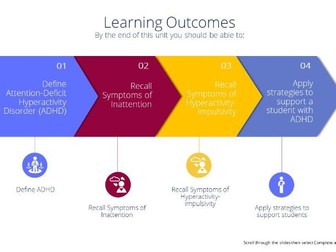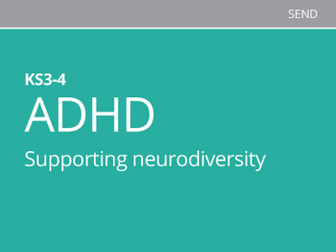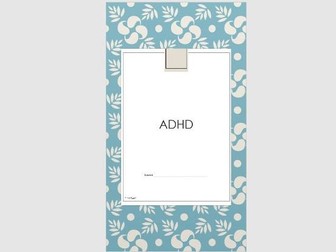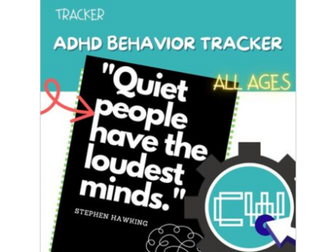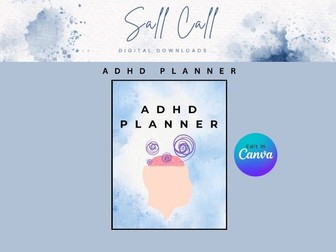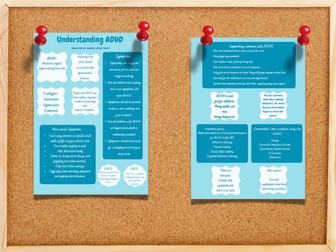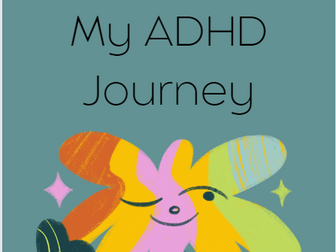Supporting Students: ADHD
<p>This PPT training module with focus on how to support students with ADHD.</p>
<p>Supporting neurodivergent students in the classroom is crucial for creating an inclusive and equitable learning environment. Neurodivergent individuals, such as those with autism spectrum disorder, attention deficit hyperactivity disorder (ADHD), dyslexia, and other conditions, possess unique cognitive abilities and learning styles that may differ from neurotypical students. Here are several reasons why it is important to provide support and differentiation for neurodivergent students:</p>
<ol>
<li>
<p>Inclusion and Equity: Every student deserves an equal opportunity to learn and thrive in the classroom. By supporting neurodivergent students, we promote inclusivity and ensure that their diverse needs are met. It helps create an environment where all students feel valued, respected, and included, leading to improved self-esteem and overall well-being.</p>
</li>
<li>
<p>Individualised Learning: Neurodivergent students often require individualized approaches to learning. Implementing differentiation strategies allows educators to tailor instruction and assessments to meet the unique needs and strengths of each student. By accommodating diverse learning styles, educators can enhance engagement, comprehension, and academic success for neurodivergent students.</p>
</li>
<li>
<p>Academic Achievement: Providing appropriate support for neurodivergent students enhances their academic achievement. Neurodivergent individuals may have strengths in areas such as creativity, problem-solving, pattern recognition, or attention to detail. By recognizing and nurturing these strengths, educators can help neurodivergent students excel in their areas of expertise while also addressing any challenges they may face.</p>
</li>
<li>
<p>Social and Emotional Development: Supporting neurodivergent students positively impacts their social and emotional development. By fostering an inclusive classroom environment, students learn empathy, tolerance, and respect for neurodiversity. Additionally, tailored support helps neurodivergent students develop self-advocacy skills, self-regulation strategies, and coping mechanisms, which are essential for their overall well-being and successful integration into society.</p>
</li>
<li>
<p>Enhanced Classroom Environment: Supporting neurodivergent students benefits the entire classroom community. Implementing differentiation strategies encourages flexible and creative teaching methods that can benefit all students. It fosters a culture of acceptance, respect, and understanding, where all students learn to appreciate and celebrate diversity.</p>
</li>
</ol>
<p>This training with focus on supporting students with Attention-Deficit Hyperactivity Disorder.</p>
<p>By the end of this training you should be able to:</p>
<ul>
<li>Define Attention-deficit Hyperactivity Disorder</li>
<li>Recall the symptoms of inattention</li>
<li>Recall the symptoms of Hyperactivity and impulsivity</li>
<li>Apply effective strategies to support students with ADHD</li>
</ul>
